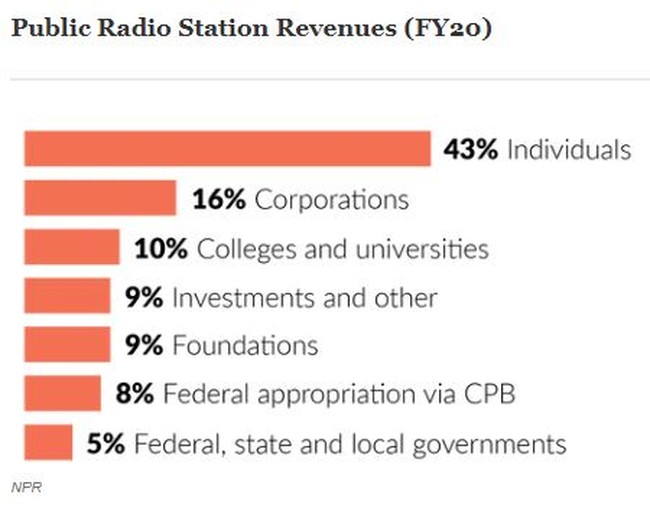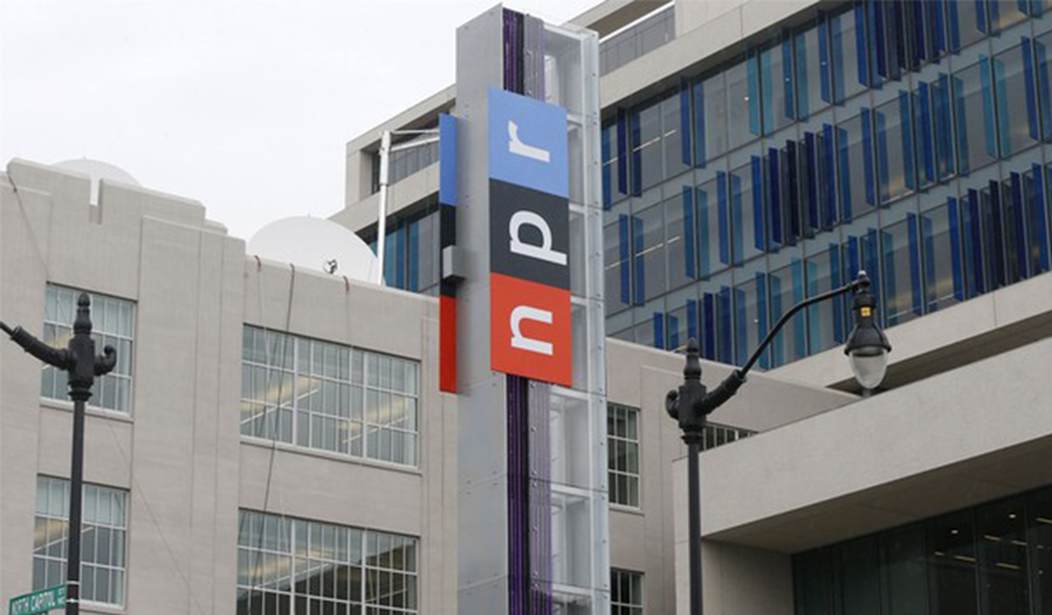National Public Radio was founded in the 1960s and has been taking public money for its entire existence. But today the organization announced it was quitting Twitter because it’s tweets were being labeled “government-funded media.”
NPR will no longer post fresh content to its 52 official Twitter feeds, becoming the first major news organization to go silent on the social media platform. In explaining its decision, NPR cited Twitter’s decision to first label the network “state-affiliated media,” the same term it uses for propaganda outlets in Russia, China and other autocratic countries.
The decision by Twitter last week took the public radio network off guard. When queried by NPR tech reporter Bobby Allyn, Twitter owner Elon Musk asked how NPR functioned. Musk allowed that he might have gotten it wrong.
Twitter then revised its label on NPR’s account to “government-funded media.” The news organization says that is inaccurate and misleading, given that NPR is a private, nonprofit company with editorial independence. It receives less than 1 percent of its $300 million annual budget from the federally funded Corporation for Public Broadcasting…
“The downside, whatever the downside, doesn’t change that fact,” NPR CEO John Lansing said in an interview. “I would never have our content go anywhere that would risk our credibility.”
The label “state-affiliated media” was a mistake. That label usually implies a “news” outlet that is effectively run by a nation as propaganda, such as Russia’s RT network. Government-funded media is closer though NPR is not as government-funded as it used to be. This is from Wikipedia:
During the 1970s and early 1980s, the majority of NPR funding came from the federal government. Steps were taken during the Reagan administration in the 1980s to completely wean NPR from government support, but the 1983 funding crisis forced the network to make immediate changes…
According to CPB, in 2009 11.3% of the aggregate revenues of all public radio broadcasting stations were funded from federal sources, principally through CPB;[58] in 2012 10.9% of the revenues for Public Radio came from federal sources.[59]
NPR has frequently said that less than 1% of their budget comes from the government but I think they’re referring to NPR the over-arching entity that distributes content nationwide. The “member stations” that pay dues to NPR get a more substantial portion of their support (about 13%) from the government.

In any case, Musk’s Twitter applied the same “government funded” label to the BBC but said recently that he would change the label to “publicly funded.” That wasn’t enough to convince NPR to stay.
John Lansing, NPR CEO, at the @MorningEdition meeting.
NPR says it will de-emphasize Twitter. Aside from the misleading label, NPR says Twitter isn’t used by most Americans; drives little traffic to NPR; and “no longer has the public service relevance that it once had.” pic.twitter.com/35SrgCGqD1
— Steve Inskeep (@NPRinskeep) April 12, 2023
My sense is that NPR is leaving in a snit because they found the state media label insulting. In general, it has never been good for NPR to talk about its public funding so even if the label changes to “publicly funded” they won’t appreciate having that reminder stapled to every tweet they put out.
More broadly, NPR has always been a sort of flagship news outlet for white liberals, the very people who’ve recently decided that Elon Musk is no longer a green energy visionary but is instead a dangerous right-wing billionaire. With his purchase of Twitter, the site became tainted. If you’ve been on Twitter in the past six months, you’ve already seen lots of progressives bashing the Musk-owned site, suggesting it was about to collapse and making plans to leave. In a sense, NPR is just recapitulating that trend a few months late.
You can find our other social media here:
Facebook: https://t.co/LPf1rTD6xz
NPR Instagram: https://t.co/Y0f3bMMAif
NPR Politics Instagram: https://t.co/cYGgXHuanD
LinkedIn: https://t.co/4EKqDi7E71
NPR TikTok: https://t.co/ThDNbfeMNP
Planet Money TikTok: https://t.co/MRAfE6NobI— NPR (@NPR) April 12, 2023
The labels just gave NPR a reason to abandon a socially-awkward connection to Twitter. It makes sense for the outlet to engage in some corporate virtue signaling by leaving. But as you can probably tell from the first paragraph of NPR’s own report, they see themselves as “the first” major news outlet to leave which sort of suggests they are hoping others will follow. And maybe they will. Other progressive outlets have the same interest in virtue-signaling their disdain for Musk to please their readers. It would be a lot easier to bash the site if they weren’t using it.
Update: NPR’s White House correspondent approves.
NPR is stepping away from Twitter. It’s the right move and I’m proud of us for taking it.
Here’s where you can still find all our content: https://t.co/XFTLlIj6LS
— Scott Detrow (@scottdetrow) April 12, 2023








Join the conversation as a VIP Member